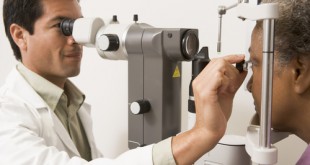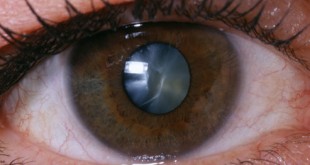Introduction
Erectile dysfunction (ED) is defined as the persistent or recurrent inability of a male to attain and / or maintain a penile erection. This inability leads to insufficient sexual performance [1].
Diabetes is a risk factor for ED and affects approximately 34 to 45 percent men [2]. ED is a complication of long standing diabetes. Vasculopathy (abnormal blood vessels of the penile muscles) and / or autonomic neuropathy (abnormality of the nervous activity of the penile muscles) and / or psychological factors (mental disorders) result in ED [2, 3, and 4].
What is Erectile Dysfunction?
ED is not commonly screened due to barrier in doctor-patient relationship. It is a sensitive issue and always left untreated. Commonly ED is caused by physical factors. A smaller proportion is due to psychological reasons.
The presence of full erections during sleep and morning erection tends to suggest that the physical structures are normal.
Common causes of ED among diabetes patients are vascular disease (blood vessel disease) and autonomic neuropathy (nerve disease). Cardiovascular disease (heart disease) is a strong predictor of ED.
Psychological causes of ED include depression, anxiety, stress and poor communications with partner.
Symptoms of ED are :
- Trouble getting an erection
- Trouble keeping an erection
- Reduced sexual desire
Complications resulting from ED may include :
- An unsatisfactory sex life
- Stress or anxiety
- Embarrassment or low self-esteem
- Marital or relationship problems
- The inability to get your partner pregnant
What Cause Erectile Dysfunction?
An increased risk of ED among men with diabetes mellitus could be due to earlier onset and greater severity of atherosclerosis (narrowing and hardening of the blood vessel wall). Atherosclerosis narrows the arteries and reduces the delivery of blood supply to the penis.
Insufficient blood supply to the penis causes difficulty in achieving or sustaining erection. Diabetes neuropathy (nerve function abnormality) causes damage to both sensory and autonomic nerves thus leading to ED.
In addition to atherosclerosis and / or neuropathy causing ED, men with diabetes may also develop myopathy (muscular problem of the penile muscles due to diabetes) [6]. Myopathy leads to decreased compliance of muscles in the penis [6]. Clinically it will present as inability to maintain erection.
How to Screen For Erectile Dysfunction?
The International Index of Erectile Function (IIEF) that was validated into Malay version is a recommended tool use to screen ED in diabetes patients [7].
Screening should start in male patients age 40 years and above. This is because they do not volunteer the problems pertaining to ED.
Risk Factors for Erectile Dysfunction
- Long standing diabetes
- Vascular disease (large blood vessel complication)
- Autonomic neuropathy (abnormality of the nerve function)
- Increasing age
- Poor glycaemic control
- Smoking
- Hypertension
- Dyslipidaemia (abnormality of the cholesterol and fat profile)
- Cardiovascular disease (heart disease)
Management of Erectile Dysfunction
Psychosexual counseling is recommended to manage functional ED. Psychiatrist evaluation may be needed if there is psychological element contributing to ED.
Avoidance of certain drugs that may cause ED is essential. It is recommended to consult the doctor regarding these drugs. Drugs that may cause ED include :
- Antihypertensives (thiazides, beta blockers, methyldopa and spironolactone)
- Antidepressants
- Tranquilizers
- NSAIDS
- H2 Antagonist
- Narcotics
Pharmacological treatment is available but needs a prescription from the doctor. Sildenafil (Viagra), Tadalafil (Cialis) and Vardenafil (Levitra) are some of the examples [8]. Other non pharmacological treatments are available when drugs fail.
Tight glucose control, optimal management of co-morbidities namely hypertension and dyslipidaemia is essential in the management of ED.
Conclusion
ED is a common complication in diabetes patients resulting from blood vessel and nerve function abnormality. Smaller proportion of ED is due to psychological factors. Screening should be done early and treatment is available.
Refrences
- National Institute of Health (NIH) Consensus Development Panel on Impotence. JAMA 1993; 270: 83 – 90
- Montagne DK, Barada JH, Belker AM, al. Clinical Guidelines Panel on Erectile Dysfucntion. Summary Report on the Treatment of Erectile Dysfunction. J Urol 1996; 156: 2007-2011.
- Shiri R, Hakama M, Hakkinen J, et. al. Relationship between Smoking and Erectile Dysfunction. Int J Impot Res 2005; 17: 164-169
- Bacon CG, Hu FB, Giovannucci E, et. al. Association of Type And Duration of Diabetes with Erectile Dysfunction in A Large Cohort of Men. Diabetes Care 2002, 25: 1458-1463.
- Teng TO, Osgood ND. The Link Between Smoking and Impotence: Two Decades of Evidence. Prev Med 2001; 32: 447-452.
- http://www.medicinenet.com/impotence_ed/page3.htm#what_are_the_causes_of_erectile_dysfunction – accessed 21st September 2012
- Lim TO, Das A, Rampal S et al. Cross-cultural Adaptation and Validation of the English Version of the International Index of Erectile Function (IIEF) for use in Malaysia. Int J Impotence Res 2003; 15: 329 – 336
- http://www.mayoclinic.com/health/erectile-dysfunction/DS00162/DSECTION=treatments-and-drugs – accessed 21st September 2012
 PENDIDIKAN PESAKIT Kementerian Kesihatan Malaysia
PENDIDIKAN PESAKIT Kementerian Kesihatan Malaysia
![Male reproductive system [6]](http://pendidikanpesakit.myhealth.gov.my/wp-content/uploads/2015/11/Male-reproductive-system-6.jpg)



